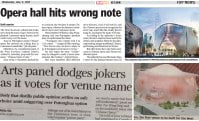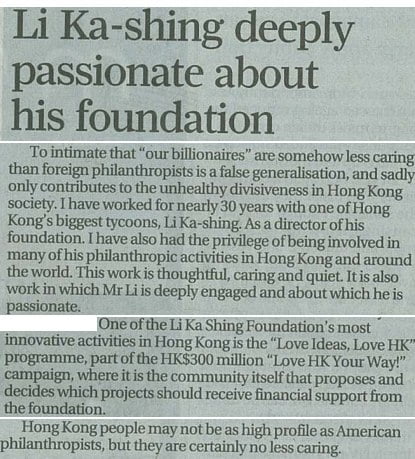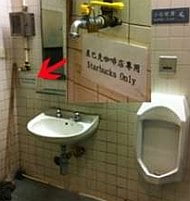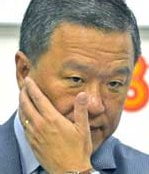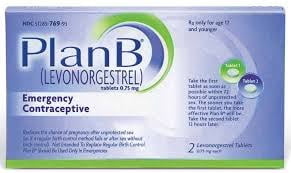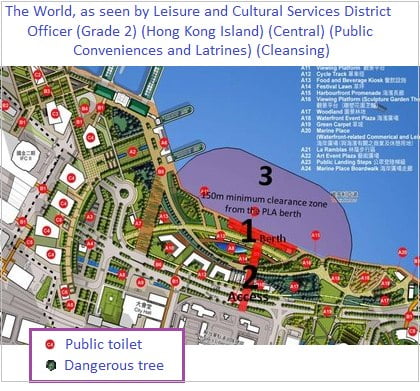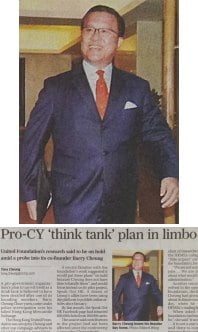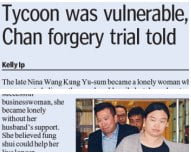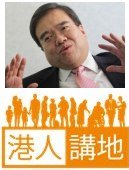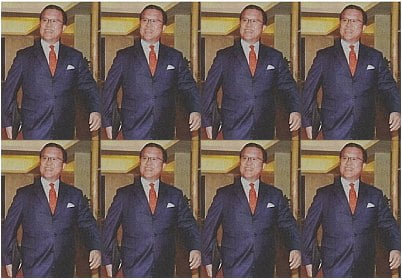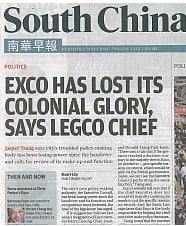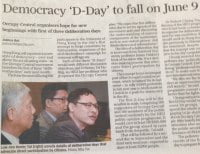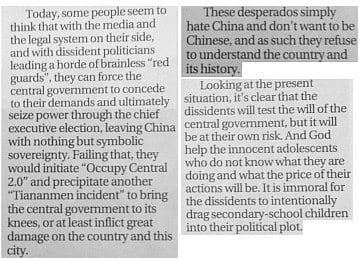Is Hong Kong full yet or not? Does Hong Kong need more people, or do we have too many? If we can find answers to these questions, should government act upon them?
Environmental activists think the Big Lychee has reached full capacity, and in order to avoid future reclamation of land and to protect dolphins, they want to clamp down on family-reunion immigration from the Mainland…
There are countless objections to this. A lot of space is taken up by the parasitical tourism industry; the gargantuan Kai Tak cruise terminal will be empty for the first 300 days of operation, while Disneyland begs to be converted into a new town. A lot of space is taken up by underused roads and bridges and adjacent sterilized land. Property tycoons sit on barren stretches of the New Territories. And is it fair to single out Mainlanders when a Hong Kong resident is entitled to be joined instantly by a spouse and kids from, say, Botswana or Venezuela? Still, if it is beyond the wit of policymakers, interest groups and greens to cut visitor numbers and utilize land properly, yes we are full.
But Chief Secretary Carrie Lam says otherwise…
Well, actually she says otherwise, sort of, except that, but then again, while of course, though on the other hand – and we’re none the wiser. I especially like the bit where it says some unidentified power should be ‘encouraging marriage and childbirth to make good use of the existing population’. All those of us who have been agonizing over how we could be made better use of will be cheered to hear this.
Carrie says we do need more people. Economic growth will be constrained without an ‘infusion of new blood into the labour force’. (This presumes that we want/need an economy that forever expands in absolute terms, and that our schools will fail to produce more productive/innovative/adaptable graduates.) But then she asks who should pay for extra children. She accepts that most developed economies give subsidies to families with children (and she could mention that Hongkongers rich enough to pay profits tax get such a handout via allowances for dependent children) and take other measures to encourage the livestock to breed (or, maybe in Hong Kong’s case, reduce disincentives). What she means here is the whole caboodle: financial subsidies for all kids; maternity/paternity leave; better housing/schools; maybe Finnish baby-boxes.
This raises a whole host of profound issues to do with the role of the state in Hong Kong, doesn’t it? Should government be a Scandinavian nanny, or a Singaporean eugenicist, or a Nazi German breeder of a perfect master race, or an American Head Start/No Child Left Behind helping hand, or what?
But no such searching philosophical inquiry for Carrie. We won’t be going there, not because of principle, but because it…
“…often involves a range of measures that cut across various policy areas.”
Visionary thinking, Hong Kong-style, 2013. Think back over the last centuries and millennia… We could find cures for disease, solutions to poverty, improvements in technology, expansion of learning, freedom where there is slavery, light where there is darkness, peace where there is fear – a transformation whereby the human race moves from being cave-dwelling hunter-gatherers to civilized societies – but we won’t because it…
“…often involves a range of measures that cut across various policy areas.”
I am delighted to declare open a special extra-long weekend, lasting a good four days or so, in which I will be in an anonymous and probably Internet-free part of Southeast Asia. Might take some interesting photos, but then I might not, because it…
“…often involves a range of measures that cut across various policy areas.”



